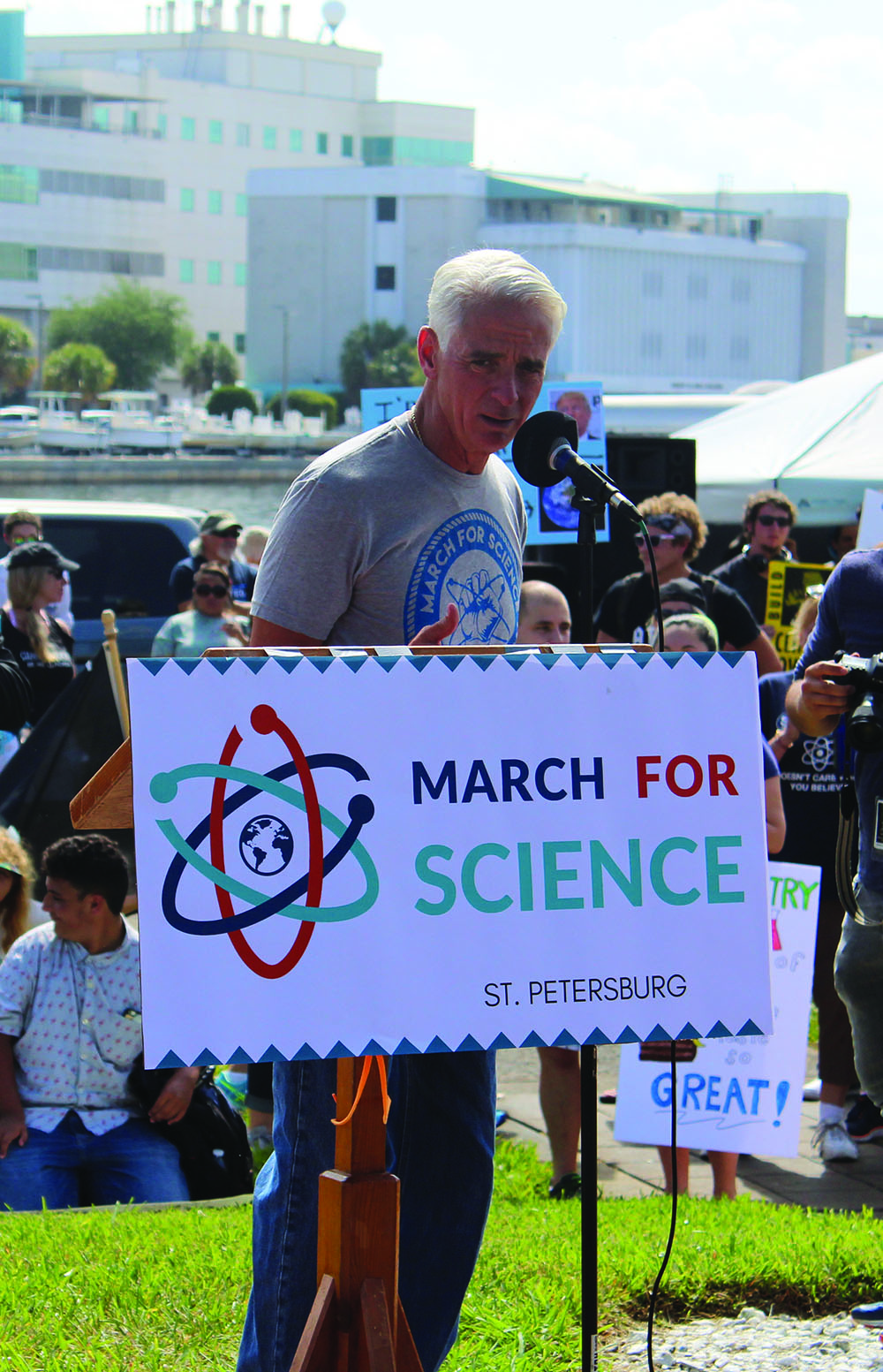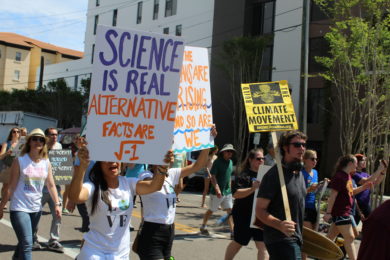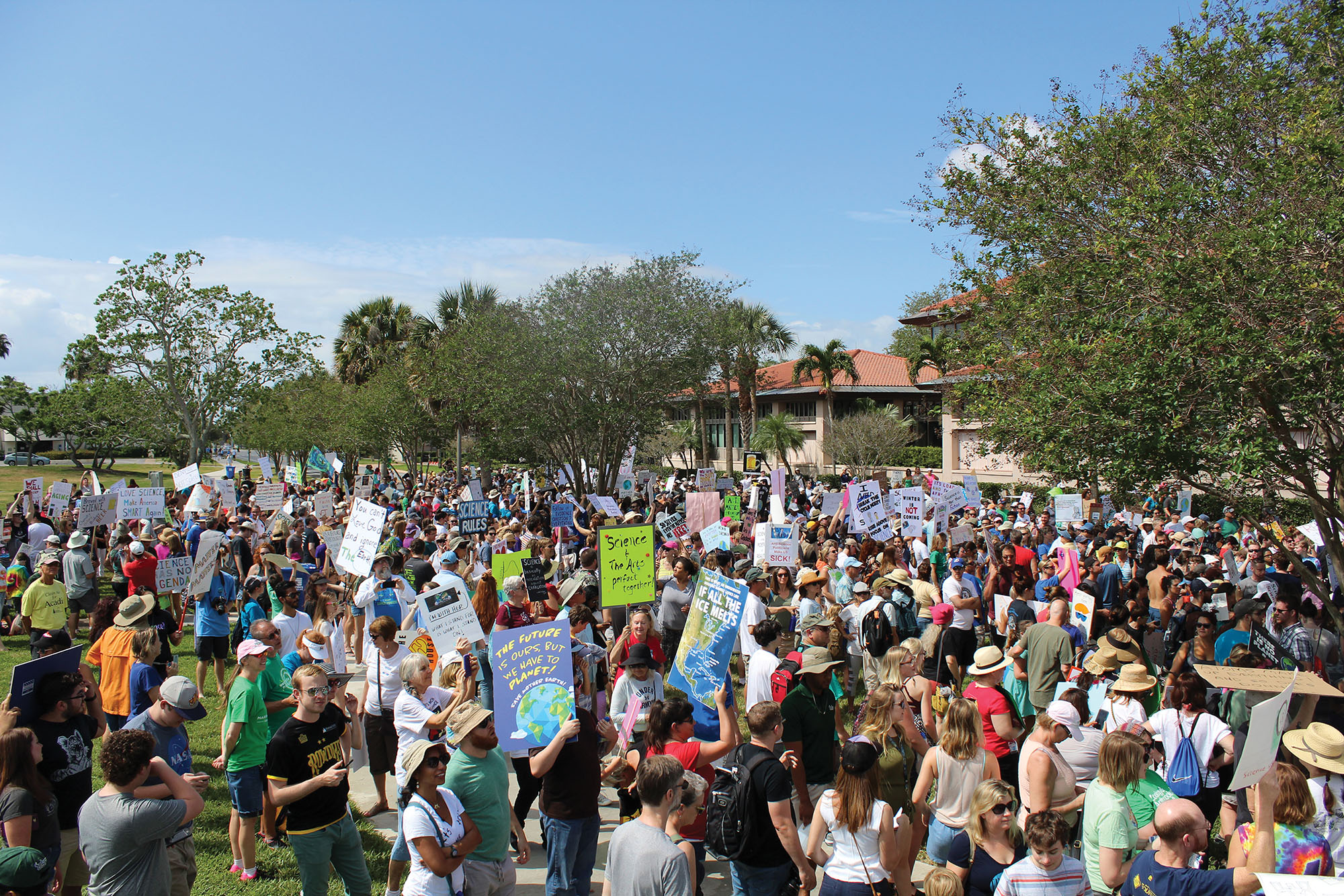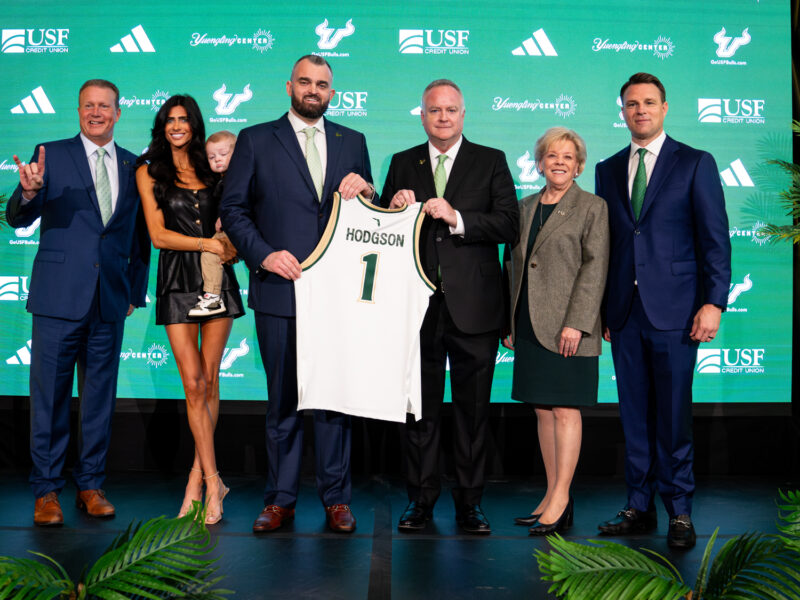“Science is Not a Liberal Conspiracy,” read one sign. “Make America Think Again” and “Grab Her By The Data” read two others.
Thousands gathered at Poynter Park on Earth Day, April 22, for the March for Science. Teachers, students and scientists took to the streets of downtown St. Petersburg to show their support for evidence-based decision making, as well as in protest of the Trump administration’s threats of budget cuts that could slash several scientific agencies.

Over 600 cities across the world joined the demonstration at satellite locations, with Washington D.C spearheading the movement as the main site.
“This is just the beginning. This is a launching off point for us to start bridging the gap between the scientific and public community,” said Brittany Combs, a graduate student at the College of Marine Science.
Combs is a statistician who studies oceanography. She is also one of the primary organizers of the event at Poynter Park. In between research, she has found herself obtaining road closure permits and raising funds in the name of science.
“As a scientist, just getting good at going out in the community and clearly voicing the purpose of events like [the march] is huge,” she said.
According to Combs, one doesn’t have to be a scientist in order to support evidence-based policy making. She points to the wide diversity of people at the event and notes that having this kind of broad range of people is integral to the scientific process.
A rally held at the start of the march seemed to echo these sentiments. Pedro El Poeta, a spoken word poet, declared us as being in a “state of emergency” before applauding the crowd for “mathematically putting it down.”
Combs introduced one speaker after another.
Dr. David Hastings, professor of marine science and chemistry at Eckerd College, was direct and to the point.
“We don’t want to be here. We want to be in the lab testing data — we want to be in the classroom teaching students,” he said. “Science is not partisan. It’s not republican, it’s not democrat. It doesn’t vote red or blue. That’s why I love data.”
Darden Rice, District 4 St. Petersburg City Council member, spoke about the importance of weighing the evidence when creating policy.
“Some say it’s dangerous to mix science with politics. But to say that is to naively ignore the role that bold, forward-thinking leadership plays in providing the support and creation of scientific institutions,” she said. “It would be to ignore the importance and responsibility of elected leaders to use evidence-based science and peer-reviewed publications as the basis for sound public policy.”
Charlie Crist, the former governor and current representative for Florida’s 13th Congressional District was among the speakers introduced.
“We have an administration in Washington that doesn’t fully embrace what we are talking about here today, so we must talk. We must be heard,” he said.
Signs reading “Science Not Silence,” “There is No Planet B” and “Science > Shit You Read On Twitter” dominated the streets. Chants filled the air: “What do we want? Science! When do we want it? Now!” and “This is democracy!” rang out.
Not everyone enjoyed themselves. James Walker, a chemical engineer who is an alumnus of USF Tampa, is a self-described Leninist and Marxist. For him, the events that transpired are too heavily inspired by classic liberal-democrat lines of thinking.
“We are accomplishing nothing. It’s not like we’re ever going to change anything,” he said. “It’s just another side of the capitalism coin.”
On the other hand, he says that it is about what he was expecting and notes that he isn’t too disappointed by how the day has turned out.

Mykolas Meilus is a freshman studying environmental science. For him, the experience has been a little bit different.
“Today has been great. The best part about it is that we are making science communication more viable and open,” he said, wearing a white lab coat.
Meilus explained that he found out about the event from his job at Mad Science, one of the sponsors of the event. It is an organization focused on science education for children.
Dr. Karyna Rosario was one of the last speakers at the rally. She is a research scientist at the College of marine science who specializes in viruses, specifically working out of the Marine Genomics Laboratory led by Dr. Mya Breitbart.
Despite admitting to being hesitant about speaking at the event, Rosario’s speech was one of passion and determination.
“I’m here to stand up with all of you for the scientific endeavor, not just to learn about viruses, but about the world that we live in,” she said. “How is it possible that we have to defend something that is so vital to the well-being of our society?”
Rosario said that she was there to march not only as a scientist but as a mom and a citizen that is outraged.
“It is our duty to remind everyone that science is a pillar of our society. We cannot afford to jeopardize scientific endeavors by censoring information and facts just because they might be inconvenient,” Rosario said.



